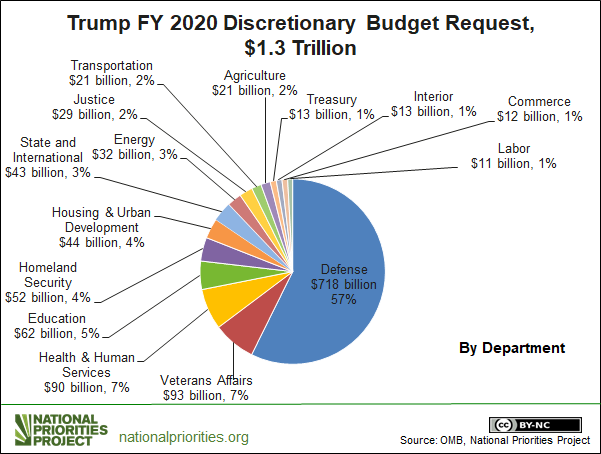Calls Grow Louder to Cut the Military Budget to Meet Human Needs
Published on July, 36 2020
By Nancy Price
Co-chair, Earth Democracy Issue Committee
July 2020
Planning for the second stage of our “Exposing the Military: Hidden Polluter of Water” campaign in four New England states comes at the time when people are also calling to defund the US Military. Cuts in the military budget could be used to clean up PFAS contaminated sites and for expensive water treatment to ensure safe drinking water.
It is time to take action now – speak out to support a Moral Budget, and call your representative and senators to ask them to support recent amendments related to PFAS issues!
The Poor People’s Moral Budget
For years, peace organizations, public policy institutes, faith communities, and NGOs have identified what to cut and how to spend that money for healthcare, education, public services, repair of our transportation infrastructure, affordable housing, renewable energy, and so much more. (Read this Joint Statement: U.S. Organizations React to Global Military Spending Report).
In 2019, the PPC recommended in the “Poor People's Moral Budget: Everybody Has the Right to Live” reducing the $740 plus billion budget by $350 billion and listed how these savings would be used for human needs and to protect the environment. Read the “Legislative and Policy Priorities of the Poor People’s Campaign” which includes the following five sections:
Part I. Establish Justice and End Systemic Racism: The Right to Democracy and Equal Protection Under the Law
Part II. Promote the General Welfare: The Right to Welfare and an Adequate Standard of Living
Part III. Ensure Domestic Tranquility: The Right to Work with Dignity
Part IV. Secure the Blessings of Liberty: The Right to Health and A Healthy Environment
Part V. Provide for the Common Defense: Reprioritizing our Resources
Now’s the time to speak out on the 2021 Military Budget.
In February, President Trump sent Congress his proposed Fiscal Year 2021 budget request of $740.5 billion for national security. Beginning in July, the House of Representatives Armed Services Committee will have hearings and vote on H.R. 6395, which then goes to the House and the Senate for debate and a vote.
On June 20-21, 2020, more than 2 million people attended the Poor People’s Campaign virtual gathering. As Rev. William Barber and Rev. Liz Theoharis of the Poor People’s Campaign make so clear in their June 21 statement, “A moral agenda for a troubled America”: Whenever we demand what we know is necessary for all people to thrive, politicians who have accommodated themselves to America’s inequality ask, “But how would we pay for it?
Anticipating the PPC gathering, on June 15, Rep. Barbara Lee (D-CA) submitted a resolution to the House of Representatives proposing this $350 billion cut in the military budget to help reduce poverty and inequality, including funding for public health, education, housing, energy, diplomacy. and more. Read a summary of this plan at nationalpriorities.org.
Meanwhile, on June 25, Sen. Bernie Sanders spoke on the floor of the Senate to propose a 10% cut of the military’s budget for about a $74 billion saving to invest in education, healthcare, and poverty reduction, and Rep. Mark Pocan (D-WI) and Rep. Barbara Lee (D-CA) have said they will introduce companion amendments to the National Defense Authorization Act (NDAA) now being discussed in the House Armed Services Committee.
The Military Budget and the Human Right to Water
First: The People’s Budget proposes investing approximately $38 billion a year in water infrastructure that would create up to 945,000 jobs while providing safe drinking water to thousands of communities that don’t have it. That figure is less than what the Pentagon awarded just one corporation – Lockheed Martin – for military contracts in 2018.
Let’s be clear, that $38 billion figure, first proposed by Food & Water Watch in the WATER Act of 2016 (WATER stands for Water Affordability, Transparency, Equity and Reliability Act), has yet to be voted on by Congress. Most importantly, the Clean Water Act does not take into account the national drinking water crisis from PFAS contamination of drinking water.
Second: Amazingly, the military budget now being discussed by the Armed Services Committee authorizes
- $150 million for research to develop PFAS remediation and disposal technologies and firefighting agent replacement, and
- $1.5 billion for environmental remediation and cleanup at current military installation, formerly utilized defense sites, and closed installations and another $190 for accelerated remediation and PFAS response.
The amount proposed here for remediation and clean-up is just a “drop in the bucket.” Orange County, California, alone is facing more than $1 BILLION in remediation, and although not all that may be from military contamination, it does point to the scale of the problem.
It is so shocking that since the 1960s, the military knew PFAS chemicals were harmful to public health and looked the other way to escape responsibility
Let’s be clear, if a small percentage of the military budget goes to pay for PFAS impacts, still we are paying for their knowingly poisoning the environment and causing immense suffering to people exposed to PFAS-contaminated drinking water on military bases and in surrounding communities.
It is time to take action. A number of Armed Services Committee members have introduced or support more amendments to H.R. 6395 related to PFAS issues. Find the phone number for your Representative and your Senators or call the US Capitol Switchboard (202) 224-3121. Be clear that you want support for all these amendments whether that person is on the committee or will be voting when H.R. 6395 comes to the full House for a vote before going to the Senate. We must assert our human right to safe water and health.



